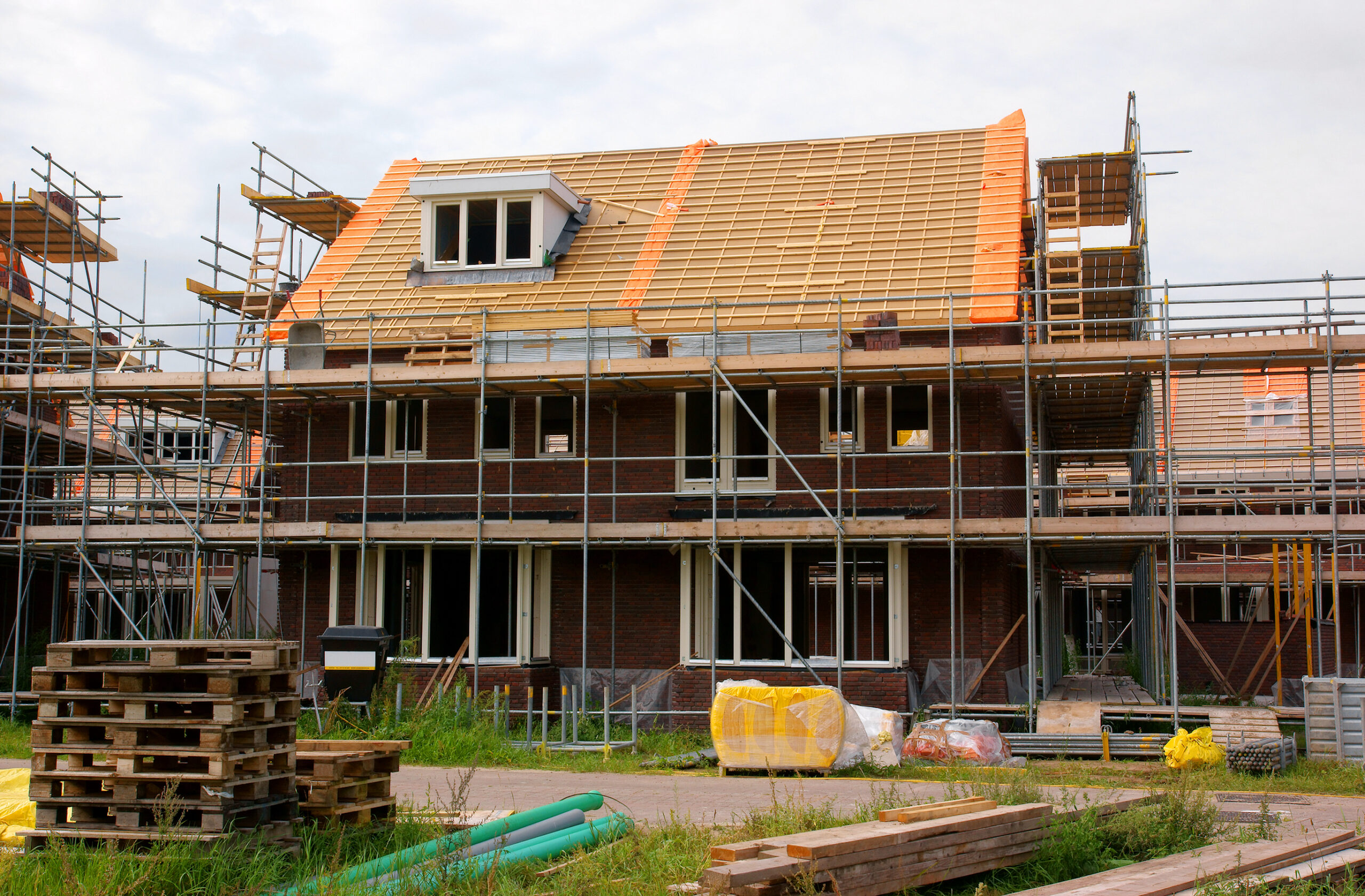Partner content
Proper planning is key when buying a newly built home

With the ongoing shortage of existing properties to buy, turning to new residential developments is becoming a better option for internationals, particularly if they are planning to spend more than three or four years in the Netherlands, says mortgage expert José de Boer.
If you have decided to take the plunge and buy a new house in the Netherlands – and I get the feeling more and more internationals are going for this option – there are differences to buying an existing property that you should be aware of.
I’ve written before about some of the advantages offered by buying a newly built property. For example, you don’t have to pay property transfer tax (overdrachtsbelasting) as you do on an existing house, and the bank will lend up to 100% of the market value, so you don’t need much in the way of savings either.
But there are other things you also need to take into account and, I can’t stress enough how important it is to get proper advice before you start, particularly if you are not comfortable doing it all in Dutch.
If you have come across a nice new residential project, rest assured you are probably not the only one. And if it is a popular development, you might find yourself taking part in a lottery for the house or flat you’ve got your eye on.
Take part in a lottery
Sometimes projects are sold on a first come first served basis, but often they are allocated in the form of a lottery and sometimes even the developer gets to pick. There are no legal rules for any of this but you might be asked to prove that you can pay for the property when you fill in the form to express your interest. Get in touch with your mortgage advisor about this and make sure you have a head start on the paperwork.
If you are lucky and get selected, you will first get a preliminary contract – or koop-aannemingsovereenkomst – to sign and then you legally have three days to change your mind – although many contracts give you a week.
This contract also outlines agreements between the developer and the builder, so it will contain some clauses that you need to take stock of.
Completion date
As well as financial details, such as the total amount you are paying for the property it will include key information about the construction project and the date it is scheduled for completion. It will also include information about guarantees and how to end the contract if you can’t get your mortgage finalised.
Check, for example, if the builder is affiliated to a recognized guarantee fund such as SWK, Woningborg, or Bouwgarant. This will protect you if the builder goes bankrupt during building.
You should also look at what the builder is offering in terms of “meer en minderwerk” – extra jobs such as putting different tiles in the bathroom or giving the ceiling a different finish.
Remember too that the end date the developer gives you may well differ from reality. But the contract will state how long building work can legally take, and if that is exceeded you may also be able to make a claim.
Developers are also increasingly inserting clauses about the impact of increasing prices for building materials and may want to pass on any extra costs they make to you. Make sure you are happy about this as well.
Types of mortgage
Of course, you still have to decide what sort of mortgage to take – and if you want to take advantage of mortgage interest tax relief, you have a choice between two types, the linear mortgage and the annuity mortgage. While the payments in a linear mortgage tend to be higher in the first few years, the annuity mortgage maintains a consistent monthly repayment but you will pay more in interest.
When you buy a new house you never know exactly when you are going to start paying off your mortgage because that depends on the date that the land where your new home will be built has been formally handed over. Once this has happened, you will start your monthly payments to cover the costs so far. The rest is then put aside in a sort of “construction fund” to cover the actual cost of your home.
Once work has started, you will pay interest on your mortgage and pay off part of the capital loan – but you will also get interest over the amount in the construction fund. In the early days, the interest you get will almost be the same as the interest you pay, but of course as time goes on and the fund is reduced, you will benefit less.
It sounds complicated, but don’t let all this put you off taking the plunge. You might have to wait for a new home to be built, but if you’ve got the time, it is worth doing. You’ll get a home with at least an A+ energy label and one that won’t require any expensive renovation, and that is a definite plus as well.
Thank you for donating to DutchNews.nl.
We could not provide the Dutch News service, and keep it free of charge, without the generous support of our readers. Your donations allow us to report on issues you tell us matter, and provide you with a summary of the most important Dutch news each day.
Make a donation